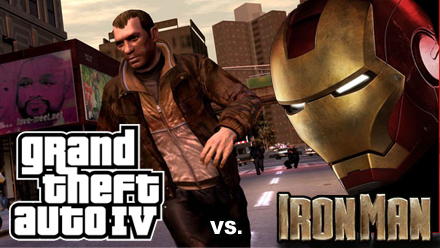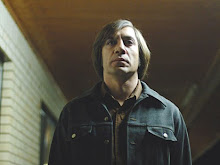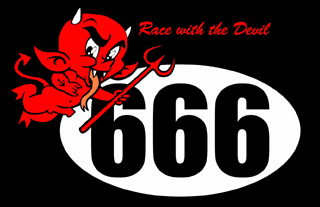In Bell Case, Black New Yorkers See Nuances That Temper Rage
Published: April 27, 2008
There was anger on the streets of Jamaica, Queens, where Sean Bell was killed in a hail of 50 police bullets in 2006 — both before and after a judge on Friday acquitted three detectives who had been charged in the shooting. But many black men and women in Jamaica and elsewhere in New York said their anger was tempered by the complicated case that unfolded in a city less racially divided than 10 years ago.
Skip to next paragraph 
Jacob Silberberg for The New York Times
Sheener Bailey recited a poem on Friday that she wrote about the death of Sean Bell on the street where he was killed.

Jacob Silberberg for The New York Times
Elliott Clark of St. Albans, Queens, said he disagreed with the judge’s verdict, but felt more resigned than angry about it.
In Harlem, Willie Rainey, 60, a Vietnam veteran and retired airport worker, said that he believed the detectives should have been found guilty, but that he saw the case through a prism not of race, but of police conduct. “It’s a lack of police training,” Mr. Rainey said. “It’s not about race when you have black killing black. We overplay the black card as an issue.”
Even near Liverpool Street and 94th Avenue in Jamaica, the very spot where Mr. Bell was killed, Kenneth Outlaw stood and spoke not only of the humanity of Mr. Bell but of the police as well. “A cop is a human being just like anyone else,” said Mr. Outlaw, 52. “If I had to be out here, facing the same dangers the cops face, I’d be scared to death too.”
New York controversies have a way of playing out along racial lines in a city that is diverse but often seems stratified. When Amadou Diallo, an unarmed West African immigrant, was killed by the police in a blast of 41 shots in the doorway of a Bronx apartment building in 1999, his death became shorthand for excessive police force against minorities.
Yet in the aftermath of the verdict in the Bell case, many black New Yorkers reacted not with outrage but with a muted reserve, saying that the city felt like a less polarized place in 2008, nearly a decade after the Diallo shooting and with a different mayor and police commissioner. Some also said that after a seven-week trial, the picture of what happened the night Mr. Bell, a black man, was killed was still murky, and so they left the public outcry to a relatively small group of black activists who had been closely monitoring the case.
There were those, however, who spoke of losing faith and trust in both law enforcement and the judicial system, and who saw the Bell case as a vivid example of how little has changed. “How many shots have to be fired for things to change?” asked Torell Marsalis, 35, of South Jamaica.
The verdict set off visible outrage. There were scuffles outside the Queens Criminal Court building, a few marches and rallies in Queens on Friday night, and later, angry denunciations among some black activists, including the Rev. Al Sharpton. But elsewhere, the reaction was more nuanced, even subdued.
Among the dozens of black men and women interviewed in recent days, many said they sympathized with Mr. Bell’s family, but also with police officers who must make life-and-death decisions in tense, uncertain moments.
Ayana Fobbs, 27, a pharmacy worker who lives in Jamaica, a few blocks from the Community Church of Christ, where Mr. Bell’s funeral was held, said she could identify with people on both sides of the Bell shooting. One of her cousins was killed by the police in a shooting in the Bronx in the early 1990s, she said, but she also had close friends who were police officers.
“I’m just concerned about what kind of message it’s going to send on both sides,” Ms. Fobbs said on Saturday. “The community here is going to feel like anybody is fair game, if something like this could happen to an unarmed man and nobody was held accountable. And then, with the officers, it sends a message to them that they can do these types of things and get away with it.”
Others said that had they been on a jury during the trial, they would have found the officers not guilty based on what they felt was the flawed case prosecutors put forward. Still others said that they did not know what to think, after weeks of following contradictory testimony in the news. “If I was the judge, I wouldn’t know what to do,” Paul Randall, 22, a college student, said on Thursday. “From following the case, it’s kind of hard to say one way or the other.”
Some of this uncertainty and ambivalence was on display on Liverpool Street immediately after Justice Arthur J. Cooperman found the three detectives not guilty of all the charges against them. One hour after the verdict, no crowd had gathered at the tattered memorial to Mr. Bell. Someone had placed a blue votive candle on the sidewalk, and there was one old, brittle bouquet of flowers and one fresh one. The water-cooler jug someone had placed there for donations contained just a few bills.
A man who approached was not there to protest the verdict. He was only walking by, on his way to pay a parking ticket around the corner. The man, Elliott Clark, 54, had seen the news of the judge’s decision on television, and though he disagreed with the verdict, he was more resigned than outraged. This was not 2000, when Rudolph W. Giuliani was mayor and Howard Safir was police commissioner and the four officers indicted in the killing of Mr. Diallo were acquitted, he said.











































